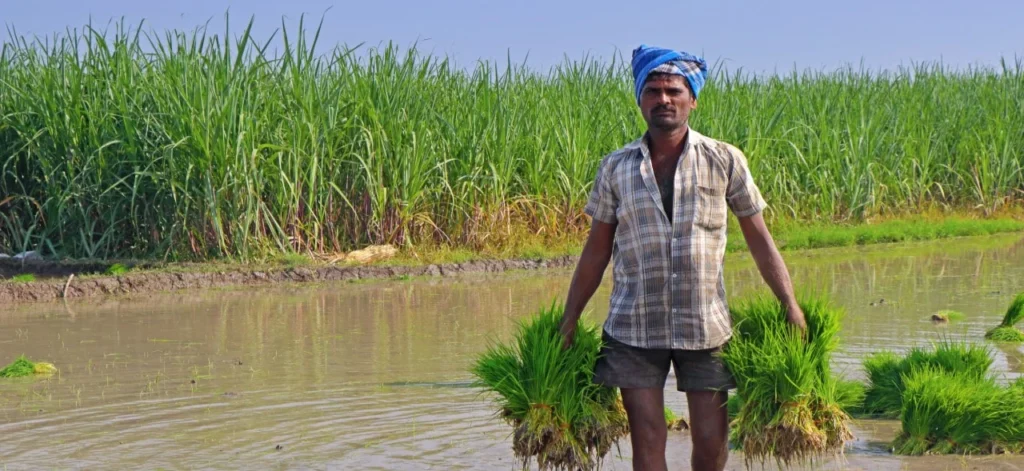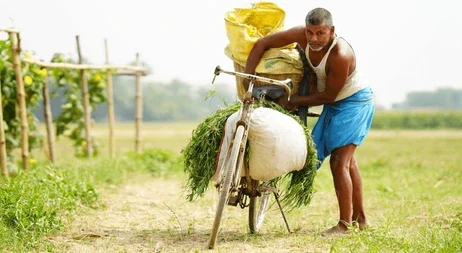Bihar, one of India’s leading agricultural states, has long been recognized for its vast fertile lands and the diversity of crops it produces. The state is particularly known for crops like rice, wheat, maize, and pulses, along with its rich produce of fruits like bananas, mangoes, and litchis. Despite this abundance, Bihar has struggled to fully harness its agricultural potential due to various challenges, including limited industrial development, inadequate infrastructure, and lack of robust market linkages. This is where the food processing sector comes into play as a game-changer.

In recent years, both the state and central governments, as well as private players, have identified food processing as a key sector that could not only help boost Bihar’s economy but also solve some of the pressing problems that farmers in the state face. The sector’s development promises to reduce wastage, create jobs, and increase the income of farmers. However, for these opportunities to be fully realized, a multifaceted approach addressing farmer issues, infrastructure development, and policy support is required.
Bihar’s Agricultural Landscape: Potential and Problems
Agriculture is the backbone of Bihar’s economy, with around 76% of the population engaged in farming and related activities. The state’s fertile Gangetic plains and ample water resources have enabled the cultivation of a wide variety of crops. Bihar ranks among the top producers of fruits and vegetables in India, with districts like Muzaffarpur and Vaishali being globally recognized for their high-quality litchis and bananas.
Despite this, the agricultural sector in Bihar faces significant challenges:
- Fragmented Landholdings: The average landholding size in Bihar is small, making it difficult for farmers to adopt modern farming practices or invest in technology that could boost productivity.
- Inadequate Storage and Transport: Bihar suffers from a lack of cold storage facilities, poor transport infrastructure, and inadequate access to processing units. This results in high post-harvest losses. According to estimates, nearly 30% of fruits and vegetables produced in the state perish before they reach the market.
- Market Access Issues: Farmers in Bihar are often at the mercy of middlemen due to the lack of organized market structures, which results in low returns for their produce. Without access to proper markets or processing units, farmers are unable to capture the value-added potential of their crops.
- Limited Credit and Investment: Farmers in Bihar have limited access to credit facilities, which further inhibits their ability to invest in new technology, high-quality seeds, or irrigation systems. Without adequate financial backing, farmers remain vulnerable to economic shocks, particularly during times of crop failure or price crashes.
Food Processing: A Critical Solution
The food processing sector holds the key to addressing many of the problems that Bihar’s farmers face. By processing agricultural products closer to the source, farmers can retain a larger share of the value of their produce. This not only increases their income but also reduces wastage, boosts employment, and strengthens linkages between agriculture and industry.
Reducing Post-Harvest Losses

One of the most pressing issues in Bihar’s agricultural sector is post-harvest loss. Due to a lack of proper storage and cold chain facilities, large quantities of fruits, vegetables, and grains rot before reaching markets. Food processing can help mitigate these losses by converting perishable products into more durable forms like canned goods, packaged snacks, and frozen foods.
Take, for example, litchi production in Muzaffarpur. While Bihar is one of the largest producers of litchi in India, farmers often struggle to sell their produce in time due to the short shelf life of the fruit. Processing units that produce litchi pulp, juice, or dried litchi could help extend the life of the fruit and open up new markets domestically and internationally.
Value Addition and Increased Farmer Income

Food processing allows farmers to move beyond selling raw produce and tap into value-added products, which fetch higher prices. For instance, rather than simply selling maize as a commodity, it can be processed into products like cornflakes, starch, or corn oil. Similarly, pulses can be turned into packaged dal products or ready-to-eat meals.
The ability to participate in value-added chains significantly increases farmer incomes. Processing units not only buy raw materials at better rates than middlemen but also ensure that farmers are paid promptly, reducing their dependence on exploitative local traders.
Government Initiatives and Private Sector Involvement
The development of Bihar’s food processing sector has been a focus area for both state and central governments. Several policy initiatives have been put in place to encourage investments in this sector:
- Pradhan Mantri Kisan Sampada Yojana (PMKSY): This central government scheme aims to create modern infrastructure for food processing units, including cold chain systems, agro-processing clusters, and food parks. Bihar stands to benefit significantly from this initiative as it seeks to build integrated food processing zones across the state.
- Mega Food Park Scheme: Bihar has already seen the establishment of a Mega Food Park in Khagaria, which offers state-of-the-art infrastructure to food processing units. This park provides facilities like warehouses, cold storage, and processing units for fruits, vegetables, and cereals. More such parks are being planned across the state.
- Bihar’s Industrial Investment Promotion Policy, 2016: This state policy offers incentives for setting up food processing units, including subsidies for land acquisition, tax exemptions, and easy access to credit. These incentives have helped attract private players to invest in the state’s food processing sector.
Private Sector Participation
The involvement of private players is crucial for the long-term growth of the food processing sector in Bihar. Companies like Adani Group and ITC have already expressed interest in setting up food processing units in the state. Adani Group’s commitment to investing ₹5,500 crore in various sectors in Bihar, including food processing, is expected to bring much-needed infrastructure and technology to the sector.
ITC’s initiatives in Bihar have focused on sustainable agriculture and the creation of value chains that directly benefit farmers. The company’s e-Choupal initiative, for example, provides farmers with direct access to markets and information, helping them get better prices for their produce. ITC is also involved in setting up food processing units for its branded products, which use locally sourced agricultural products.
Farmer Challenges and the Road Ahead
While the potential for food processing in Bihar is immense, several challenges need to be addressed to ensure that farmers fully benefit from this sector.
Lack of Infrastructure
The lack of adequate infrastructure remains a significant challenge. While the government has made strides in building food parks and cold storage facilities, much more needs to be done to ensure that every farmer has access to these services. Rural roads need to be improved, and transport networks need to be expanded to ensure that perishable goods can be moved quickly and efficiently to processing units and markets.
Training and Skill Development
Many farmers lack the technical knowledge and skills required to participate in food processing value chains. The state government, along with private players, needs to invest in training programs that teach farmers how to grow crops that are suitable for processing, how to handle post-harvest procedures, and how to manage the logistics of getting their produce to processing units.
Initiatives like the National Skills Development Corporation (NSDC) can be leveraged to train rural youth in food processing technologies, packaging, and quality control, creating a skilled workforce that can support the growth of this sector.
Access to Finance
One of the major barriers to farmer participation in food processing is the lack of access to affordable finance. Small-scale farmers often find it difficult to obtain loans to invest in infrastructure or technology that would allow them to process their crops. Microfinance institutions and cooperative banks need to play a larger role in providing financial support to farmers. Additionally, the government’s credit schemes, like the Kisan Credit Card, need to be more accessible and easier to obtain.
Market Linkages
While food processing creates opportunities for value addition, it is essential that processed products have access to markets. Both domestic and international markets need to be tapped to ensure that processed goods from Bihar find buyers. The government can play a role in facilitating trade agreements and export initiatives that open up new markets for processed goods from Bihar.
Additionally, platforms like e-NAM (National Agriculture Market) can be expanded to include processed goods, ensuring that farmers and processors have access to a larger market and can obtain better prices for their products.
Conclusion
The food processing sector offers a golden opportunity for Bihar to transform its agricultural economy. By reducing post-harvest losses, creating value-added products, and boosting employment, food processing can significantly improve the livelihoods of Bihar’s farmers. However, realizing this potential requires a concerted effort from the government, private players, and the farmers themselves.
Investment in infrastructure, training, and market linkages is essential to ensure that Bihar’s farmers can participate fully in the food processing value chain. With the right support, the sector can play a key role in lifting Bihar’s rural population out of poverty and making the state a hub for processed food products in India and abroad.
As Bihar steps into a new phase of industrialization, the success of the food processing sector will be critical in shaping the state’s future economic trajectory. With initiatives like Adani Group’s investments and government policies geared towards supporting this sector, the future looks promising for Bihar’s farmers. However, sustained efforts are needed to address the challenges that still persist in the agricultural landscape. Only then can the full potential of food processing in Bihar be realized.




